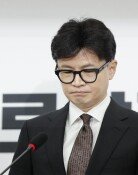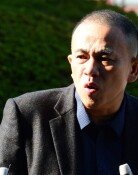Yoon throws cold water to S. Korea-China ties in every crisis
Yoon throws cold water to S. Korea-China ties in every crisis
Posted December. 16, 2024 07:50,
Updated December. 16, 2024 07:50
In a regular briefing last Thursday, Chinese foreign ministry spokesperson Ma Ning responded to President Yoon Suk Yeol's public comments about the alleged espionage of Chinese citizens in South Korea and the potential deforestation of the nation’s forests by Chinese solar energy installations. While the Chinese media would carry live coverage of the martial law situation in South Korea, the Chinese government avoided commenting on these issues, calling them ‘internal affairs.’ Still, Beijing reacted angrily to Yoon's use of China as his ‘excuse’ not to resign.
Even if President Yoon included China with the intention of actively emphasizing the national security and economic crisis, watchers say it was inappropriate for him to mention a specific country in front of the entire nation and the world. For China, it is also an embarrassing move, regardless of whether his allegations are the facts. The Chinese foreign ministry rarely uses the word ‘unexpected’ in its briefings when rebutting the behavior of other governments or individuals.
This is not the first time President Yoon's comments have been a variable in South Korea-China relations. In an interview with Reuters in April last year, he commented on the cross-strait conflict between China and Taiwan, saying “The Taiwan issue is not just a matter of China and Taiwan, but it is a matter of the whole world that goes beyond the region like the matter of North and South Korea.” China, which considers the Taiwan issue its internal affairs, criticized South Korea at the time, calling it ‘playing with fire.’
The similarities between last year's comments and this one are that they both came at the ‘worst possible timing.’ Yoon's comments last year came amid heightened expectations that China would lift the restrictions on South Korea, including allowing foreign singers to resume performing in China after its ‘zero corona policy.’ Notably, it was just a week after Chinese President Xi Jinping visited an LG Display factory in Guangzhou. It was the first time Xi visited a South Korean company in China since taking power in 2012. The trilateral summit between South Korea, China, and Japan scheduled to be held in Seoul at the end of last year was also postponed until May this year, with many speculating that Yoon's remarks on Taiwan were not unrelated to the postponement.
The martial law situation has already hurt South Korea-China relations. Most notably, the timing of South Korea's ambassador to China Chung Jae-ho’s return home, which was scheduled on Monday, and that of his successor Kim Dae-ki’s placement to China has become unclear. Opposition parties have criticized Chung for his lack of qualifications amid controversies over his alleged mistreatment of embassy staff. Critics also say new ambassador designee Kim will not be able to play a proactive role even after assuming the ambassadorship since President Yoon has been suspended from office due to his impeachment.
There are also concerns that preparations for the Asia-Pacific Economic Cooperation (APEC) summit in Gyeongju next November will be affected. Neither the president nor the ambassador is in a position to take the lead at a time when the three countries are engaged in fierce ‘willing and dealing’ over the situation in Northeast Asia ahead of the ‘Trump 2.0 era,’ which is just a month away.
Watchers say the National Assembly's passage of the impeachment bill against President Yoon and the suspension of the president's duties on Saturday have removed some of the uncertainties from South Korean politics. However, it is important to remember that the task of repairing the damaged national status and normalizing South Korean diplomacy is just beginning.







